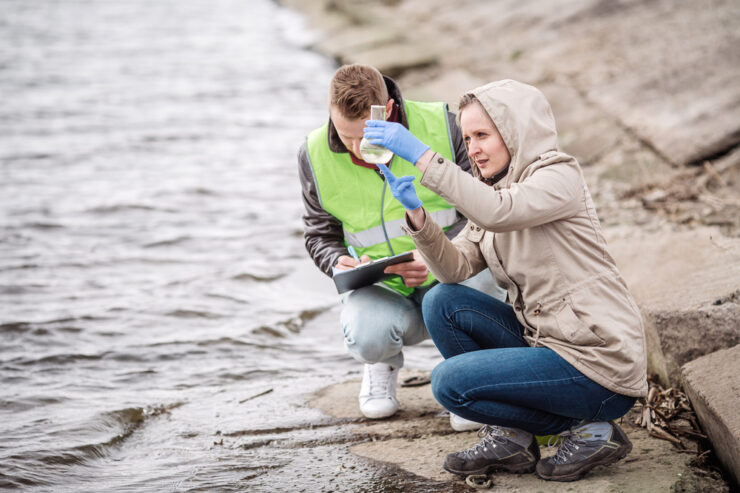Case Info
Monsanto sold PCBs for use in many products— in paints, caulks, paper products, lubricants, sealants, plasticizers, coolants, hydraulic fluids, and industrial electrical equipment such as capacitors and transformers. Since 2015, many States, cities and other public entities have sued three successors to old Monsanto Company (collectively referred to as Monsanto) for PCB contamination of natural resources and other public property.
The Long, Toxic Legacy of Monsanto’s Greed
For decades, Monsanto knew that PCBs were toxic, highly persistent chemicals that would inevitably contaminate the environment all over the world. But instead of admitting these problems and working on a solution, Monsanto insisted that PCBs were not toxic and that they could be vented directly into the air, landfilled, or washed down the drain or into streams, without any special precautions.
As the evidence mounted of global contamination, Monsanto explicitly rejected the idea that it should stop selling PCBs because there was (in Monsanto’s words) “selfishly too much Monsanto profit” to stop. Because of this profit-driven conduct, PCB contamination is now widespread, including in wildlife and in fish consumed by humans.
State and local PCB lawsuits seek compensation for damage caused by PCBs to natural resources and/or other public property.
- For example, states have sued Monsanto in their capacity as owners or trustees of natural resources contaminated by PCBs.
- Similarly, cities, counties, and other local entities have sued Monsanto for the cost of removing PCBs from stormwater draining into bays, lakes, and rivers—contamination that these public entities are often required to spend millions of dollars to address under federal environmental law.
- School districts and teachers have sued Monsanto for PCBs that volatilize into the air from certain materials (e.g., caulk and light ballasts) in older K-12 school buildings. Because PCB contamination is so dangerous to students and staff, and often nearly impossible to remove, some schools must be demolished entirely, at immense cost.
PCBs Impact on Natural Resources and Public Health
PCBs have been associated with injury to people and wildlife who come into contact with the chemicals. During use, PCBs have been found to aerosolize and leach into the environment over time from the degradation of products containing the substances. PCBs have also been released from spills and leaks during storage or disposal.
Once released into the environment, PCB molecules can settle in soil and concrete or become dispersed in bodies of water. Soil, water, and air contaminated with PCBs can spread the chemicals to other areas and cause harm to humans, wildlife, domestic animals, and marine life. Contact with PCBs can be particularly harmful to young children during development.
Harmful effects caused by PCBs may include:
- Liver damage
- Thyroid and metabolic changes
- Neurological disorders
- Birth defects or disorders
- Ocular changes
- Immunological damage
- Skin irritations
- Reproductive effects in both males and females
- Various types of cancer
Once released, PCBs are persistent and do not break down easily in the environment or in the body. In some cases, contamination may persist for decades or require costly cleanup and remediation, along with frequent monitoring and testing. Other areas polluted with PCBs cannot be rehabilitated, and their resources remain unavailable for use by the general population.
